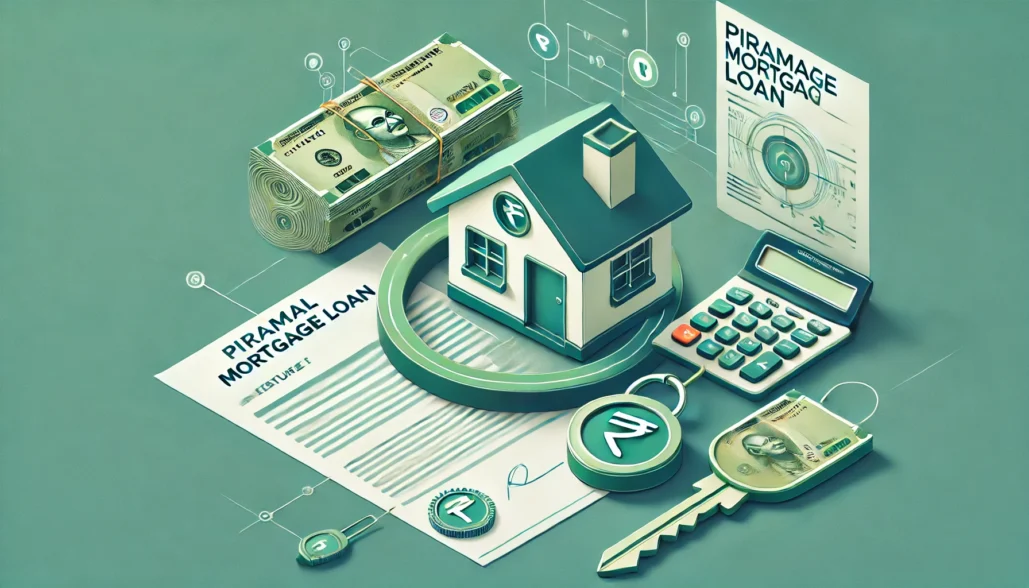Are you considering applying for a business loan but unsure about the required documentation? Understanding the necessary documents for a business loan is crucial. By knowing what documents are required, you can streamline the application process and increase your chances of approval.
Understanding Business Loan Eligibility Criteria
Minimum Credit Score
To know the documents required for a business loan, it’s essential to understand the minimum credit score needed. Lenders typically look for a credit score of at least 680 to consider a business loan application.
A stable business revenue history is crucial when applying for a business loan. Lenders often require several years of financial statements to assess the stability and performance of the company. These documents can include profit and loss statements, balance sheets, and tax returns.
Ready to streamline your business loan application process? Explore our tailored business loan in Coimbatore, designed to match your needs and requirements.
Factors Affecting Eligibility
Several factors influence business loan eligibility beyond just credit scores and revenue history. The industry in which the business operates plays an important role; some industries are considered riskier than others by lenders due to market volatility or other factors.
Essential Documents for Your Business Loan Application

Importance of Documents
Gathering all the essential documents for a business loan application is crucial. Lenders require these documents to assess the financial health and reliability of a business.
Having all the required documents organized and ready demonstrates to lenders that the business is well-prepared, responsible, and capable of managing finances effectively. It also expedites the loan approval process.
List of Required Documents
Business Plan: A comprehensive plan outlining your business goals, target market, financial projections, and marketing strategies.
Financial Statements: This includes balance sheets, income statements, cash flow statements, and tax returns from previous years.
Legal Documents: Business licenses, registrations, articles of incorporation or organization (if applicable), as well as any contracts or agreements related to the business.
Personal and Business Credit History: Lenders will want to review both personal credit reports and scores along with those tied directly to the business.
Collateral Documentation: If you’re offering collateral for the loan (such as equipment or real estate), documentation proving ownership is necessary.
Proof of Identity: Valid identification such as a driver’s license or passport for each owner involved in applying for the loan.
Preparing these documents in advance ensures that you are ready when it’s time to apply for a business loan.
Completing the Business Loan Application Form

Tips for Accuracy
When completing a business loan application form, it’s crucial to ensure accuracy. Providing incorrect information can lead to delays or even rejection of the application. To avoid errors, applicants should double-check all details before submission. It’s advisable to use official documents and financial records as references while filling out the form.
Common Mistakes
- One common mistake made when filling out a business loan application is providing incomplete or inconsistent information.
- Omitting required details in any section of the form can result in processing delays or denial of the application altogether.
- Another error is failing to review the entire document before submission.
- Applicants should carefully go through each section, ensuring that no fields are left blank and all entries are correct.
- Moreover, inaccuracies in personal or business contact information could hinder communication between lenders and applicants.
To illustrate further, misspelling an email address or phone number may prevent important updates about the status of the loan request from reaching the applicant on time.
Ensuring Proper Completion
Properly completing every section of a business loan application form is essential for a successful submission. This includes providing detailed responses where necessary and attaching all requested supporting documentation.
Applicants should pay close attention to specific requirements outlined by lenders regarding additional materials such as business plans, financial statements, tax returns, and legal documents related to ownership structure (e.g., articles of incorporation). Failure to include these items might lead to delays in processing due to requests for missing documentation.
Providing Identity and Address Proof
Accepted Documents
For a business loan application, acceptable identity proofs include,
- PAN card
- Aadhaar card
- voter ID
- passport
- As for address proof, utility bills, ration card, or lease agreement are typically accepted.
When providing identity and address proof for a business loan application, it’s crucial to ensure that the documents meet the validity requirements.
Clarity of Copies
The clarity and legibility of copies of identity and address proofs are paramount in the business loan application process. If these documents are unclear or illegible due to poor scanning or photocopying quality, it can lead to delays in processing the loan application.
Verifying Age for Business Loan Eligibility
Age Criteria
To qualify for a business loan, applicants must meet certain age criteria. Lenders typically require borrowers to be at least 18 years old, although some may set the minimum age at 21. This is because individuals below this age are considered minors and may not have the legal capacity to enter into a binding contract.
Acceptable Documents
When applying for a business loan, applicants need to provide acceptable documents to verify their age. Commonly accepted forms of identification include government-issued documents such as driver’s licenses, passports, or state ID cards. These documents contain the applicant’s date of birth and are used by lenders to confirm that the individual meets the minimum age requirement.
It’s important to note that providing false information about one’s age on a loan application can have serious consequences, including legal action and denial of the loan. Therefore, it is crucial for applicants to ensure that they submit accurate and authentic documentation in support of their age verification.
Furnishing Financial Documents for Business Loan Approval
Key Documents
To secure a business loan, know the documents required. Lenders typically request proof of income, such as tax returns and bank statements. They also require a business plan outlining your company’s financial projections.
It is crucial to provide accurate and up-to-date financial records when applying for a business loan. This includes recent tax returns, profit and loss statements, balance sheets, and cash flow forecasts. These documents offer lenders insight into your company’s financial health.
Importance of Accuracy
Accurate financial records demonstrate your ability to manage funds responsibly, instilling confidence in lenders about approving your loan application. Providing precise information reduces the risk of delays or rejections due to discrepancies.
Specific Document Requirements for Self-Employed Professionals
Unique Requirements
Self-employed professionals have unique document requirements when applying for a business loan. Unlike traditional employees, they need to provide additional documentation to prove their income stability and financial standing. Lenders often require these documents to assess the borrower’s ability to repay the loan without a regular paycheck from an employer.
Demonstrating Income Stability
For self-employed professionals, demonstrating income stability is crucial when applying for a business loan. Lenders want assurance that the individual has a reliable source of income to meet their financial obligations. Providing thorough documentation not only showcases consistent earnings but also reflects responsible financial management.
It’s important for self-employed applicants to maintain accurate records of their earnings, expenses, invoices, contracts, or any other relevant financial documents that can substantiate their income claims.
Streamlining the Documentation Process for Business Loans
Utilizing Digital Tools
Managing business loan documents efficiently can be achieved by utilizing digital tools. These tools help in organizing and storing all necessary documents in one place, making it easier to access and share them when required.
Digital tools also enable easy collaboration with advisors or lenders by allowing them secure access to specific folders containing relevant documentation. This streamlines the process of sharing information while maintaining data security. Moreover, these tools often come with search functionalities that make finding specific documents quick and efficient.
Seeking Professional Advisors’ Assistance
Another effective strategy for streamlining the documentation process is seeking assistance from professional advisors who specialize in business loans. These experts possess comprehensive knowledge of the documentation requirements for different types of loans and can guide entrepreneurs through the entire process.
Professional advisors can provide valuable insights into which specific documents are crucial for a particular type of business loan application. They can also offer advice on how to present these documents effectively to enhance the chances of approval. By leveraging their expertise, businesses can ensure that they submit accurate and complete documentation within stipulated timelines.
Ensuring Data Security Online
When using internet banking for a loan application, it is essential to prioritize data security and encryption measures provided by the bank’s online platform. Applicants should ensure that they are using a secure network connection when accessing their internet banking portal to initiate their loan application.
Choosing strong passwords with a combination of letters (both uppercase and lowercase), numbers, and special characters adds an extra layer of security against potential cyber threats.
Ready to grow your business with the right financial support? Explore competitive options beyond business loans by checking out home loans in Coimbatore to secure the best funding solution for your needs.
Summary
Understanding the eligibility criteria and essential documents for a business loan is crucial for a successful application. Completing the application form, providing identity and address proof, verifying age, and furnishing financial documents are integral steps in the process.
Frequently Asked Questions
What are the essential documents required for a business loan application?
To apply for a business loan, you typically need documents such as proof of identity and address, financial statements, business registration certificates, tax returns, bank statements, and any other relevant legal or financial documentation.
How can one streamline the documentation process for a business loan?
Streamlining the documentation process involves organizing all necessary paperwork beforehand. This includes gathering all financial records, legal documents related to your business entity, and any additional information required by the lender. Being prepared will expedite the application process.
Are there specific document requirements for self-employed professionals applying for a business loan?
Self-employed professionals may be asked to provide additional documents such as professional certifications or licenses, client contracts or invoices demonstrating income streams, and details about their professional practice or service offerings.
Can internet banking be used to explore options for a business loan application?
Yes. Many banks offer online tools that allow prospective borrowers to explore different types of loans available to businesses. These platforms often provide information on eligibility criteria and required documentation before starting an official application process.
Is age verification important when applying for a business loan?
Yes. Lenders typically require applicants to verify their age using government-issued identification like driver’s licenses or passports as part of establishing their eligibility for a business loan.




